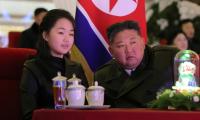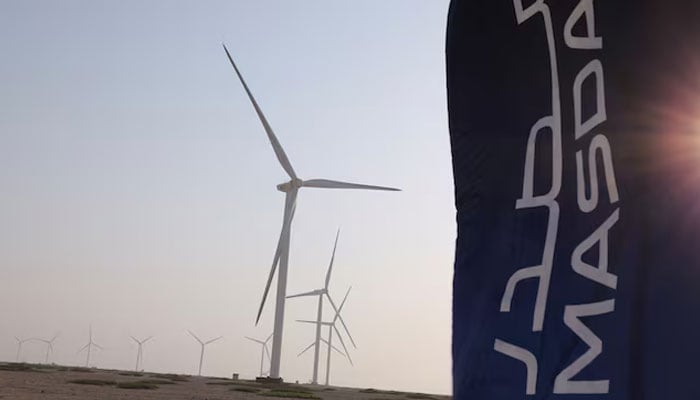The NDC challenges
NDCs are targets set by nations to reduce fossil fuel use and transition to clean energy resources
The International Day of Clean Energy is celebrated annually on January 26 to highlight the importance of clean energy in mitigating climate change and encouraging countries to transition to sustainable energy sources.
Climate change is one of the most significant threats facing the world today. Its roots can be traced to the historical, unchecked consumption of fossil fuels by wealthy nations during their industrial and economic development. These fossil fuels, known pollutants, have been the primary drivers of global warming. According to the UN, "over 75 per cent of global greenhouse gas (GHG) emissions come from burning fossil fuels for energy”. Recognising the consequences of past actions, nations reached an agreement under the Paris Agreement, which mandates a reduction in GHG emissions resulting from fossil fuel consumption. The Paris Agreement also establishes binding commitments for all participating countries, requiring them to prepare, communicate, and maintain a nationally determined contribution (NDC) and to pursue domestic measures to achieve these goals.
NDCs are targets set by nations to reduce fossil fuel use and transition to clean energy resources. Countries must update their NDCs every five years to reflect realistic and achievable goals. The next updated NDCs are due by February 2025. Pakistan has committed to reducing its emissions by 50 per cent by 2030, though this commitment comes with conditions. Specifically, 15 per cent of the reduction is to be achieved through the country's own resources, while the remaining 35 per cent is contingent on international funding. To meet this target, Pakistan aims to generate 60 per cent of its energy from renewable sources and ensure that 30 per cent of its vehicles are electric by 2030.
Despite the ambitious commitments outlined in the NDCs submitted by nations, several challenges hinder the achievement of these targets on a global scale. First and foremost, economic interests drive global decision-making. To significantly reduce fossil fuel consumption and meet climate goals, countries must compromise on certain economic interests. However, economic prosperity is closely tied to a nation’s military and political power, which is essential for maintaining hegemony in global politics. Any compromise on economic development may force nations to forgo political and strategic interests at the international level. Second, ideological differences regarding the reality of global warming and climate change hinder collective action. It is essential for a nation’s political leadership to acknowledge and believe in the urgency of climate action to implement effective measures.
The Trump administration’s decision to withdraw from the Paris Agreement through an executive order exemplifies this ideological divide, leaving the global community in shock. If a global power were to make a similar decision again, it would have a profoundly negative impact on the worldwide movement to combat climate change.
Third, the strong influence of fossil fuel lobbies, including oil companies and their employees, creates significant resistance to transitioning away from fossil fuels. These lobbies are invested in safeguarding their profits and job security, which drives them to oppose policies aimed at eliminating fossil fuel use. Their considerable political influence often shapes national decision-making, making it difficult for governments to implement necessary reforms.
Fourth, many of today’s top polluters argue that they bear little historical responsibility for global warming. They believe that industrialised nations, which have been engaged in unsustainable industrial development for decades, should be held accountable for climate change. As a result, these developing nations resist pressure to eliminate fossil fuel use, as they see it as an unfair burden that could hinder their economic growth. Consequently, they are reluctant to take urgent measures to reduce fossil fuel consumption.
Fifth, developing nations contribute minimally to global carbon emissions, yet they face significant pressure to curb emissions. Their economies are still growing, and their commitments to reducing carbon emissions in their NDCs are often contingent on financial support from wealthier nations to build clean energy infrastructure.
However, the availability of funding in global climate finance mechanisms remains uncertain. The Green Climate Fund (GCF) was established to mobilise $100 billion annually to support mitigation and adaptation projects in developing countries. While this fund serves as a critical source of financing for clean energy initiatives, the funding target has yet to be fully met. As of December 2023, total pledges amounted to a record $12.8 billion from 31 countries.
Similarly, the creation of the Loss and Damage Fund (L&D) was hailed as a major achievement for developing nations. However, several technical and administrative challenges remain before the fund can be fully operationalised. Without sufficient financial resources, developing nations struggle to transition to clean energy.
Sixth, the absence of effective enforcement mechanisms to ensure the implementation of NDCs contributes to the failure to meet climate targets. There are currently no strong incentives or penalties to hold nations accountable for their commitments. The targets set in many NDCs are also highly ambitious and require serious dedication and long-term planning to achieve.
While NDCs represent ambitious written commitments to reducing carbon emissions through various initiatives, their successful implementation requires concrete political, diplomatic, and financial decisions. Nations must move beyond rhetoric and take decisive action to transition to clean energy.
Without strong enforcement mechanisms, financial support for developing nations, and a collective global commitment, the world risks failing to meet its climate goals. The fight against climate change demands more than just ambitious pledges – it requires sustained and coordinated global efforts to ensure a cleaner, more sustainable future.
The writer is a graduate of the University of Oxford in Public Policy. She tweets/posts @zilehumma_1 and can be reached at: zilehuma_1@hotmail.com
-
 Claude Still Down? Latest Updates On Outage
Claude Still Down? Latest Updates On Outage -
 Watch: Nancy Guthrie's Suspect Break His Silence After Being Dubbed Masked Kidnapper
Watch: Nancy Guthrie's Suspect Break His Silence After Being Dubbed Masked Kidnapper -
 'Deadliest Catch' Star Dies In Tragic Incident At 25
'Deadliest Catch' Star Dies In Tragic Incident At 25 -
 Kawhi Leonard Earns All-NBA Praise From Zach Lowe After Clippers Turnaround
Kawhi Leonard Earns All-NBA Praise From Zach Lowe After Clippers Turnaround -
 Nuggets Vs Jazz: Jamal Murray’s 45 Points Power Denver Past Utah
Nuggets Vs Jazz: Jamal Murray’s 45 Points Power Denver Past Utah -
 Justin Timberlake Moves To Block Release Of Body Cam Footage From DWI Arrest
Justin Timberlake Moves To Block Release Of Body Cam Footage From DWI Arrest -
 Kim Jong Un’s Future Under Speculation: Could His Daughter Lead North Korea?
Kim Jong Un’s Future Under Speculation: Could His Daughter Lead North Korea? -
 Nancy Mace Under Investigation By House Ethics Panel For Alleged Overcharges
Nancy Mace Under Investigation By House Ethics Panel For Alleged Overcharges -
 'Sinners' Star Jayme Lawson Calls Out BAFTA Organisers For Exploiting Tourette's Advocate
'Sinners' Star Jayme Lawson Calls Out BAFTA Organisers For Exploiting Tourette's Advocate -
 Lauren Boebert Gets Yelled At By Hillary Clinton Over Leaked Photo During Epstein Deposition
Lauren Boebert Gets Yelled At By Hillary Clinton Over Leaked Photo During Epstein Deposition -
 Is It A Full Moon Tonight? NASA Says Blood Moon Will Light Up Canada
Is It A Full Moon Tonight? NASA Says Blood Moon Will Light Up Canada -
 Priyanka Chopra Reveals Why Her Late Dad Would Have 'loved' Nick Jonas
Priyanka Chopra Reveals Why Her Late Dad Would Have 'loved' Nick Jonas -
 US Embassy In Riyadh Hit By Drones As Fire Breaks Out In Diplomatic Quarter
US Embassy In Riyadh Hit By Drones As Fire Breaks Out In Diplomatic Quarter -
 Sean ‘Diddy’ Combs Set For Early Prison Release Amid Appeal
Sean ‘Diddy’ Combs Set For Early Prison Release Amid Appeal -
 Zendaya's Mom Breaks Silence Over Tom Holland Wedding Confession
Zendaya's Mom Breaks Silence Over Tom Holland Wedding Confession -
 Dax Shepard Set To Make Shocking Revelation About Childhood Sexual Abuse In New Memoir
Dax Shepard Set To Make Shocking Revelation About Childhood Sexual Abuse In New Memoir




